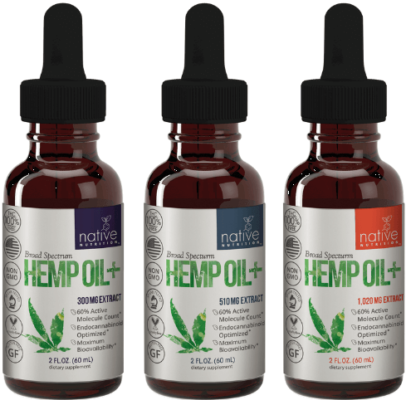What is Cannabidiol?

Cannabidiol is a chemical compound that’s found in two types of plants: cannabis (aka marijuana) and hemp. It belongs to a category of compounds called cannabinoids.
You might also be familiar with another well-known cannabinoid, tetrahydrocannabinol or THC. While THC is largely responsible for marijuana’s psychoactive properties, Cannabidiol does not provoke a “high”. Instead, cannabidiol oil or Cannabidiol is utilized for a wide range of non-psychoactive purposes, ranging from anxiety and pain relief to relieving nausea brought on by chemotherapy.
Cannabidiol oil is most commonly manufactured by extracting hemp oil (which contains Cannabidiol and other cannabinoids) from a hemp plant or by extracting Cannabidiol from a cannabis or hemp plant and then mixing it with a carrier oil (such as hemp seed oil or coconut oil). This mixture can then be utilized in a variety of strengths and a variety of forms, including capsules, tinctures, sublingual (aka under-the-tongue) sprays, or topical creams, lotions, or salves.
Even though cannabidiol oil isn’t psychoactive, the legality of Cannabidiol varies by state. All 50 states have legalized Cannabidiol in some capacity, but the specifics of these laws tend to vary. For instance, Cannabidiol products that also contain THC are only legal in certain states, and some states regulate hemp-derived CBD differently than cannabis-derived Cannabidiol.
What is Cannabidiol Oil used for?
In order to understand what cannabidiol oil is used for, it’s helpful to understand how it works in the body.
Because cannabidiol indirectly affects a wide range of bodily systems and functions, it’s used for a variety of purposes. While the world of cannabidiol research is still evolving, today people may utilize cannabidiol for the management of a wide range of mental and physical health conditions, including:
- Anxiety
- Depression
- Stress
- Substance abuse
- Epilepsy
- Alzheimer’s disease
- Parkinson’s disease
- Multiple sclerosis
- Insomnia
- Cancer
So far, researchers and Native Nutrition believe that cannabidiol operates within the body’s endocannabinoid system, which is responsible for regulating the immune system, the nervous system, and the organs and may support memory, mood, and sleep. It’s thought that cannabidiol increases the body’s levels of endocannabinoids, which can have a number of widespread effects throughout the body. Cannabidiol may also interact with the body’s serotonin receptors (the hormone associated with happiness).
What are the benefits of Cannabidiol?
While the collective body of medical research into the benefits of cannabidiol oil is still relatively small, so far this research is very promising. To date, studies suggest that cannabidiol oil may offer any or all of the following benefits and can soon be endorsed for medial treatments.
1. It may help keep the brain healthy.
Research has found that cannabidiol oil may help protect the brain from neurological conditions and/or assist in the management of these conditions. For instance, studies suggest CBD may help with managing a variety of brain-related health issues. These include:
- Epilepsy. Some of the most promising research around CBD relates to its positive effects on people with epilepsy. A range of studies have found that cannabidiol oil may reduce the frequency of seizures in epilepsy patients, including people who have struggled to find other effective treatments for their condition. These effects are so promising that the FDA has approved the first-ever CBD-containing drug for the purpose of managing epilepsy.
- Stress. A 2017 review found cannabidiol oil may help protect the brain from some of the negative cognitive effects of stress. In particular, CBD may help protect the hippocampus, which is the region of the brain that supports learning and memory.
- Parkinson’s disease. While the body of research in this area is still small, preliminary evidence suggests CBD may help relieve some of the symptoms of Parkinson’s disease and improve quality of life among people who suffer from the condition.
- Multiple sclerosis (MS). One review from last year suggested that CBD may assist in the management of MS in several ways, from relieving pain to reducing fatigue and enhancing mobility.
- Alzheimer’s disease. Because of its ability to protect the brain, studies have suggested that CBD may help slow down or even reverse some of the cognitive deficits associated with Alzheimer’s.
2. It may improve mental health.
A variety of studies suggest that cannabidiol may improve mental health in a number of ways, from reliving anxiety to assisting in the management of depression. For example, CBD oil may:
- Help relieve anxiety disorders. Cannabidiol oil may help people manage a number of anxiety disorders and their symptoms. These include generalized anxiety disorder, social anxiety disorder, panic disorder, and obsessive-compulsive disorder (OCD).
- Help manage depression. There’s some evidence that cannabidiol might help alleviate the symptoms of depression in a similar way to antidepressants.
- Help manage schizophrenia. Preliminary evidence suggests cannabidiol oil may have antipsychotic effects, which could make it an effective tool in the management of schizophrenia.
- Help manage post-traumatic stress disorder (PTSD). One study from 2018 found that cannabidiol oil may be useful in helping people cope with traumatic memories.
- Help people navigate substance abuse recovery. A small but growing body of research suggests cannabidiol oil may assist people in overcoming substance abuse, including addictions to tobacco, cocaine, and opioids. That’s because of the ways it affects the brain and nervous system. For instance, it may help protect the nervous system from some of the negative consequences of addiction.
- Help manage insomnia. Because cannabidiol can help alleviate and/or manage anxiety, depression, and stress, it may make it easier for people to fall and stay asleep. This helps explain why a2017 review found that cannabidiol oil may be useful in treating insomnia.
3. It may help relieve pain.
Studies suggest cannabidiol may help relieve pain that stems from a variety of specific health issues, such as rheumatoid arthritis and multiple sclerosis. There’s also some evidence it may help with relieving chronic pain more generally.
Researchers are still working to understand exactly how cannabidiol oil may relieve pain. So far they’ve identified two explanations:
- Cannabidiol influences the brain’s neurotransmitters in certain ways that reduce the perception of pain.
- Cannabidiol reduces inflammation, which helps lessen pain intensity.
4. It may improve cardiovascular health.
A number of studies have found that cannabidiol oil may be beneficial to heart health. For instance:
One2017 study found that a single dose of cannabidiol could lower resting blood pressure and help protect the cardiovascular system from stress.
A study from 2011 found that cannabidiol oil may reduce inflammation and cell death, both of which are risk factors for heart disease. That same study also found that CBD may help protect the heart from stress.
5. It may be useful in cancer treatment.
There’s some evidence to suggest that cannabidiol oil may facilitate cancer treatment and management in a number of ways:
- Per a 2010 study, it can help ease pain and other cancer symptoms.
- Per a 2006 study, it can relieve some of the side effects of chemotherapy, including nausea and vomiting.
In addition to these benefits, other studies have suggested that cannabidiol oil may be helpful in protecting against Type 1 diabetes, preventing bone disease, and improving skin health.
Cannabidiol Summary
While researchers are still working to understand all the ways cannabidiol oil may influence and benefit the human body and brain, studies so far suggest that CBD may assist in the management of a wide range of conditions.
But not all CBD supplements are created equal. Because this is a relatively new industry, regulators are still determining exactly what guidelines to lay out—and in the meantime, the quality of products on the market can vary wildly.
That’s why we’ve made it our mission to create a hemp-derived cannabidiol oil supplement that is organic, broad-spectrum, crafted entirely in the USA, and third-party tested to ensure purity, quality, and the absence of toxins.
We’re confident that our product is one of the best cannabidiol on the market. By creating a natural supplement that’s devoid of the nasty side effects often associated with prescription drugs, we’re proud to provide our customers with a natural, high-quality option for improved brain function, heart health, and skin and relief from the likes of anxiety, depression, and aches and pains. The future of cannabidiol oil is here, and at Native Nutrition we’re leading the charge.


